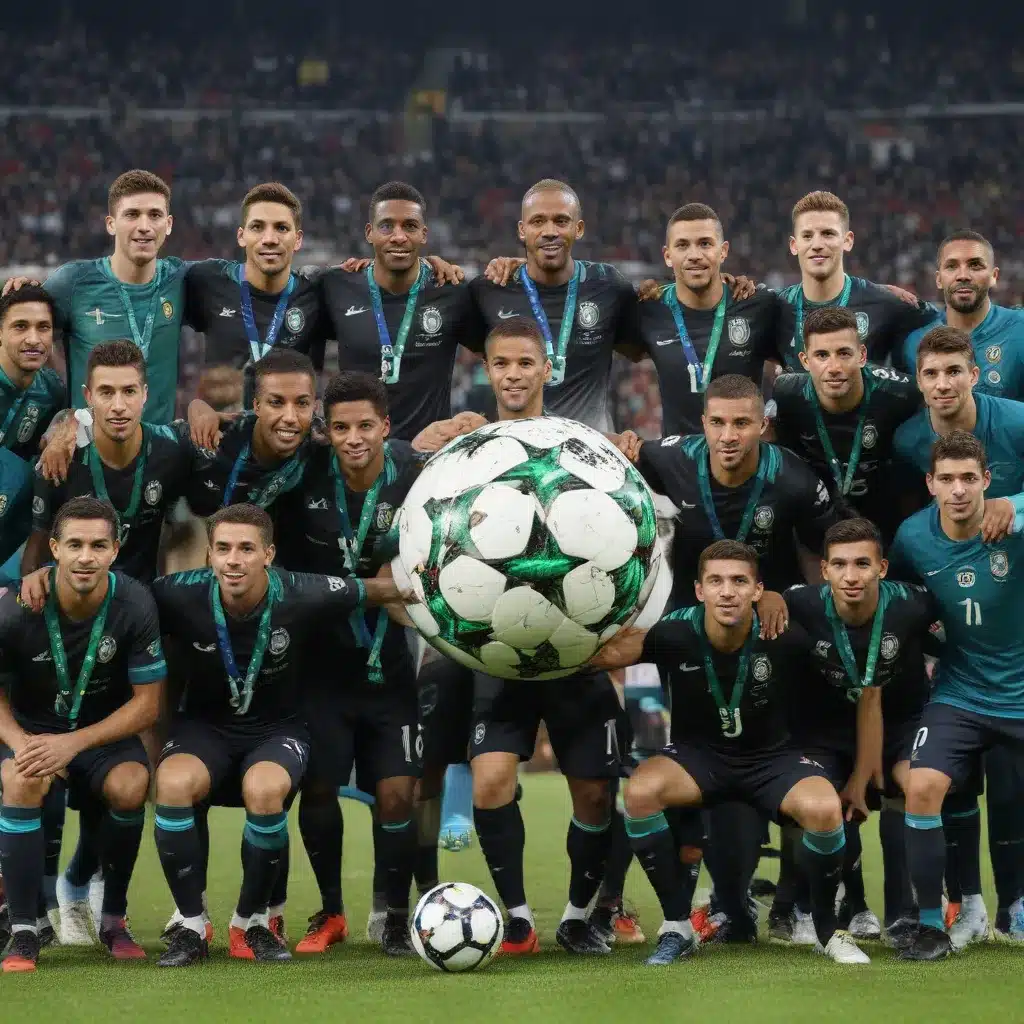
Brazil’s National Football Team: A Legacy of Excellence
When it comes to the world of football, there is no nation that commands as much reverence and awe as Brazil. The Seleção, Brazil’s national team, has long been the gold standard, a beacon of flair, creativity, and unparalleled skill. From the iconic triumphs of legends like Pelé, Garrincha, and Ronaldo, to the team’s record-breaking five World Cup victories, the Brazilians have etched their name indelibly in the annals of the sport.
But the Seleção’s influence extends far beyond the pitch. Over the decades, the Brazilian football ecosystem has had a profound impact on the very governing bodies that oversee the game globally. Through their innovative approaches, tactical evolutions, and unwavering commitment to the “Joga Bonito” (play beautifully) philosophy, the Brazilians have not only captivated fans worldwide but have also challenged and shaped the policies and decisions of football’s highest authorities.
Governing Body Relationships: Navigating the Global Stage
FIFA’s Engagement with Brazil
As the world’s governing body for football, FIFA has had a longstanding and intricate relationship with Brazil. The country’s hosting of the World Cup on multiple occasions, most notably in 1950 and 2014, has been a testament to the nation’s passion for the sport and its ability to deliver world-class events.
Beyond the World Cup, FIFA has actively engaged with Brazil in various development initiatives, tapping into the country’s rich football heritage and expertise. The establishment of the FIFA World Football Museum in Zurich, Switzerland, for instance, features a dedicated Brazilian football exhibit, showcasing the nation’s unparalleled contributions to the game.
CONMEBOL’s Collaboration
At the regional level, Brazil’s influence has been equally profound. The Confederação Sul-Americana de Futebol (CONMEBOL), the governing body for South American football, has enjoyed a symbiotic relationship with the Brazilians. From the iconic Copa Libertadores, the premier club competition in the region, to the prestigious Copa América, the Seleção has consistently been a dominant force, shaping the tactical and stylistic evolution of the sport in South America.
The Brazilian football associations, both at the national and regional levels, have played a pivotal role in shaping the policies and decisions of these governing bodies. Through their active participation, advocacy, and innovative approaches, they have ensured that the “Joga Bonito” philosophy remains at the forefront of the game’s global development.
Tactical and Stylistic Innovations: Reshaping the Game
The “Joga Bonito” Philosophy
At the heart of Brazil’s football prowess lies the “Joga Bonito” philosophy, a distinct style of play that emphasizes flair, creativity, and attacking dominance. This approach, which has been championed by the Seleção over the decades, has not only captivated audiences worldwide but has also influenced the tactical and stylistic evolution of the game.
The Brazilians’ ability to seamlessly blend technical mastery, lightning-fast decision-making, and a relentless pursuit of attacking opportunities has set them apart from their counterparts. This philosophy has challenged the traditional notions of defensive pragmatism, pushing the boundaries of what is possible on the pitch.
Pioneering Coaching Approaches
Alongside the “Joga Bonito” ethos, the Brazilians have also been at the forefront of innovative coaching methodologies. Figures like Tele Santana, Zagallo, and Telê Santana have developed unique training regimes and tactical approaches that have been widely adopted and adapted by football teams and associations around the globe.
These pioneering coaches have not only emphasized the importance of technical and tactical prowess but have also placed a strong emphasis on the holistic development of players. By integrating elements of dance, creativity, and problem-solving into their training sessions, they have cultivated a generation of footballers who are not only skilled but also possess the mental agility to thrive in the ever-evolving landscape of the sport.
Global Impact: Shaping the Future of Football
Grassroots Participation
The influence of Brazilian football extends far beyond the elite level. The country’s rich football academy system and community outreach initiatives have played a vital role in inspiring and nurturing the next generation of players, both within Brazil and across the globe.
Through the establishment of state-of-the-art training facilities and the implementation of comprehensive player development programs, the Brazilian football associations have ensured that the “Joga Bonito” philosophy is instilled at the grassroots level. This has not only helped to maintain the country’s dominance on the international stage but has also served as a model for other nations seeking to cultivate a thriving football culture.
Technological Advancements
The Brazilians’ impact on the game has also extended to the realm of technology. The country’s pioneering role in the implementation of Video Assistant Referee (VAR) technology, for instance, has been a testament to their commitment to enhancing the fairness and transparency of the sport.
Furthermore, the integration of advanced data analytics and performance-tracking systems within the Brazilian football ecosystem has enabled coaches, players, and associations to make more informed decisions, optimize training regimes, and ultimately elevate the overall standard of the game.
As the world of football continues to evolve, the influence of the Seleção and the Brazilian football community remains unparalleled. Through their unwavering dedication to the “Joga Bonito” philosophy, their innovative coaching approaches, and their embrace of technological advancements, the Brazilians have not only cemented their place as the game’s most revered powerhouse but have also played a pivotal role in shaping the future of the sport on a global scale.

